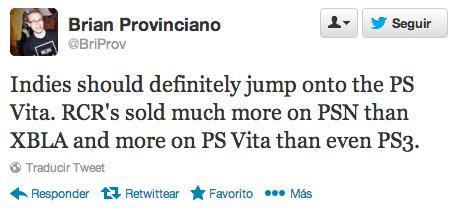Not long ago, the Xbox 360 was the platform for not only some of the biggest names in gaming, but also for smaller, independent developers that thrived by creating great games for Microsoft’s console.
At some point in the past couple of years though, Microsoft’s love for the indie scene stopped.
Call it arrogance, excessive ambition, lack of empathy and focus, constant changes in their priorities and whatnot. The thing is, when Microsoft started considering Apple, Facebook, Google and Amazon (and not so much Sony and its PlayStation brand) as the main competitors of the Xbox 360 in the battle for the living room, gamers, and particularly small, independent developers, started to feel the consequences.
Stories of how difficult it was to work with the Redmond company if you were not big enough started to surface and, worst of all for small developers, independent games (with the exception of very few, proven successes) were relegated to the background on the Xbox 360.
Developer Support
For a few years already, Sony has slowly been improving its reputation with independent game developers. So perhaps it is no coincidence that in the past few weeks (more than ever before) we have seen a tremendous push on Sony’s part towards the indie scene. Along with this, there have been some announcements from the PlayStation company that indie developers have been particularly happy to hear about. The most important of these was definitely Sony’s partnership with Unity, which means that all PlayStation games will be far easier to develop and to port between PS consoles. Sony has also begun to radically revamp its developer and game approval process, making it easier for smaller developers to self publish.
This news, along with some excellent word of mouth from fellow developers (more on that below) is bringing a lot of indie development talent to PlayStation consoles. However, if you’ve been following the news closely, you might have noticed one common trend when it comes to indie developers embracing PlayStation consoles:
- An indie developer announces a game for both the PS3 and Vita, or just the Vita in many cases.
- The same developer praises Sony for how easy it is to work with them.
- They then say how excited they are to bring their game to the PS3 and especially to the PS Vita.
As if that were not enough, some indie developers are praising not only Sony in general, but the PS Vita in particular, with Brian Provinciano (creator of the great Retro City Rampage) being among the most eloquent of them, with statements like the following, during an interview on IGN:
“But as a developer, someone who’s done development on every platform under the sun, the Vita SDK… were just super well-put-together and easy to use.”
“Deployment on the Vita dev kit was as fast as PC,” […] “That’s something that I’ve never seen before in a dev kit.”
And in addition to that, he also tweeted this:
If you are an indie developer, reading all this from an industry member as admired and respected as Provinciano, can be beyond exciting and extremely motivating.
It is word of mouth like this and Sony going to great extents to take care of independent developers what has caused the current and future Vita lineup to explode with great, original titles such as:
- Lone Survivor – PS3 and PS Vita
- Divekick – PS3 and PS Vita
- Velocity Ultra – PS Vita
- Limbo – PS Vita
- Metrico – PS Vita
- Guacamelee! – PS3 and PS Vita
- Hotline Miami – PS3 and PS Vita
- Dragon Fantasy Book II – PS3 and PS Vita
- Thomas Was Alone – PS3 and PS Vita
- Luftrausers – PS3 and PS Vita
- Friend Network App – PS Vita
- Spelunky – PS3 and PS Vita
- Zombie Tycoon 2: Brainhov’s Revenge – PS3 and PS Vita
- Binding of Isaac: Rebirth – PS3 and PS Vita
- Terraria – PS3 and PS Vita
- Stealth Bastard
- and perhaps even Fez
New Audiences
To be fair, a few of these games are ports, but the Vita offers two major advantages over other platforms where some of these games might have shown up before.
First: It puts these excellent titles in front of millions of PlayStation users that would have never experienced them otherwise. Second: Even for those who have played any of these games before, having them in portable form and on the Vita’s ludicrously gorgeous OLED display can shed a completely new light on how they experience them.
Planning for the Future
All in all, Sony is doing a hell of a job in bringing in indie talent to the PlayStation brand and to the Vita in particular. Thankfully for Vita owners, with indie devs coming into the fold in increasing numbers, Sony’s work seems to be paying off in the form of great, unique games that already are, or will soon be, available on Sony’s portable baby.
But even more important: By successfully building relationships with independent developers, Sony is already winning the battle for independent talent that will extend beyond the PS Vita and that will, in fact, be more important in the future generation than it already is in the current one.
The Next Generation
What is most exciting about all this is that Sony is following the same route with the PS4 and, at GDC, the company announced even further plans to remove the barriers between the developer and the release process. For example, there’s now no greenlighting process, no concept approval process and only one form that developers need to fill out.
Moving forward, expect more indie games on PlayStation platforms than ever before.
Essential Reading:









